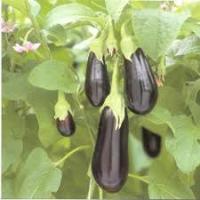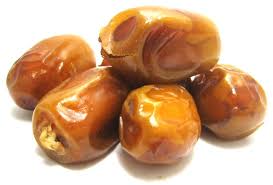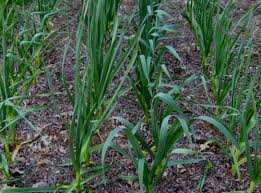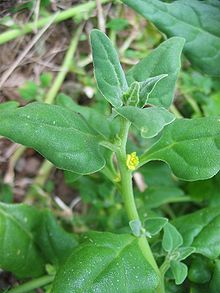Good week!
There is so much news and such a variety of new vegetables that I do not know what to write about or where to begin …
Announcements:
1. Shorshei Zion are back with a limited inventory – crackers, granola, nuts and brownies. They are still upgrading their new factory so I hope they return soon to their full variety of delicious products.
2. There are now lots of vegetables and summer fruits! I'm Reminding you that during the summer everything goes faster and when a fruit becomes available you better grab it quickly. The weather is changeable and one really hot day or one cold night can create an immediate shortage or lack of a product.
3. New, new: hygiene products by Arugot :), pure organic cosmetics.
New Products: Sage Day Cream, Ornithogalum Day Cream, Mosqito Repelent, citrus scented shampoo and floral shampoo, bar soap based on olive oil, Melissa liquid body soap and calendula ointment …. They have many more products that can be recognized on their site.
I met Esther Lachman in Jerusalem, years ago when I started to market sprouts. I arrived with my basket of sprouts to her coterie of knitting women at her home in Nachlaot J.
Today, Esther is a natural pharmacist and founder of "Arugot" fine organic cosmetics, which has a boutique workshop for natural nurturing, lectures and courses. A word from her:
"Arugot – habosem, a family quality workshop for the production of boutique organic products. The workshop was created from a personal/family wish to empower the deep connection between us and our environment while consuming natural products of the highest quality. Our products are made from organic materials only. We are the only ones with a certification that we meet international organic standards, and with a license from the Ministry of Health.
All of our products are meticulously handmade.
Behind each wonderful and unique product is our friendly values to humans and the environment, creating rare medicinal scents for each product!
Natural Cosmetics – your right to get the best!”
From the garden:
I can't write about all of the vegetable because there are so many that are at their peak right now … melons, fakus, corn, eggplant, chives, cherry tomatoes (so sweet), different types of gourds, Figs, Cauliflower, Apricots, Watermelons, Israeli Anna apples… all are at their best now. They are happy so we are happy. Of course, you can read about each one in our weekly newsletter archives – see the tags on the left.

The fakus – Some call it a Baladi cucumber, in English it is an Armenian cucumber and botanically it is actually a melon J. The Hebrew word melafefon comes from the Greek word MELOPEPONES and means "melon apple".
The fakus is a brother to the zucchini and cucumber. I have written about the confusion in the names of brother vegetables, here.
In Israel the cucumber has pride of place in the kitchen. It and the zucchini come in many colors and beautiful shapes and are ready for use in all kinds of ways. The fakus is less familiar perhaps because, despite that modern agriculture nowadays can grow lots of fruits and vegetables out of season, the fakus remains one of the truly seasonal vegetables. It is mostly grown in greenhouses and net houses, and still the fakus comes in early summer and stays a maximum of two months and disappears. I never saw it in supermarkets, but in season it can always be found in the Old City of Jerusalem. It is actually a fruit – it has seeds. If we were to grow it to its maturity it would be very similar to a long melon.
The Roman Emperor Tiberius apparently especially liked fakus and in order to be able to enjoy it every day of the year, his farmers built "raised beds within frames on wheels, by which the cucumbers were moved and exposed to the full sun, while in winter they were taken inside and placed under the protection of frames sheathed in reflective stone" (Pliny the Elder, the History of Nature Vol 4 chapter 23) Interesting huh? Sounds like huge planters on wheels that you can decide whether to leave out or put in the greenhouse …
The mother of the cucumber was probably Asian and then traveled to North Africa, Europe and our region, probably before the spread of the language, hence the mess of names and lack of documentation.
Cucumbers have been a cultivated crop for about 3000 years. Cucumber remains were found in Egyptian tombs. It was grown by Native Americans long before Columbus "discovered" the cucumber on the island of Haiti.
"King Solomon, it is safe to say, had nothing missing from his table – “…. even ice in Tammuz and cucumbers in Nissan" (Tanhuma, Shmot, Yitro chapter, Mark 7).
Each brother in the family is unique and special, but everyone agrees that the uniqueness of the fakus is not in its appearance (it is crooked, sometimes long or tiny, has hairy fluff, a pale green color – even yellow) because it is certainly not the prettiest in the family.
The uniqueness of the fakus is its great taste. Accordingly, because our garden is organic, sometimes the fakus gets bitten by insects because it is so delicious. Disregard the spots. They are only on the surface. As said by the wise:" Do not look at the vegetable, taste it! "
I know that some tend to peel their cucumbers (also the fakus) but really you should eat as many organic vegetables as possible along with its peel. The peel adds nutritional fiber and slows the release of sugar from plant into the blood (essential for those suffering from sugar problems such as diabetes, candida and fungi, sugar addiction, etc.). Leaving the peel will provide you with more vitamins because of the high concentration of vitamins found right beneath the peel.
There is a healthy trend to go back to eating local food, called Baladi, from long ago. The fakus is a great example of a fruit used by chefs as part of this trend. And for us in Israel it is considered local, even after thousands of years, right? We read that when the children of Israel worked in Egypt and walked in the desert they longed for the zucchini. The fakus is probably that zucchini (we know from other sources that it was eaten during work raw, fresh without cooking) and when they came to Israel the fakus was the first crop they cultivated, even before the arrival of the garden cucumber known to us.
There are plenty of recipes for the fakus, both where it is used raw like a cucumber and where it is cooked like zucchini. – http://maggiesgarden.co.il/recipes-2/tag/% D7% A4% D7% A7% D7% 95% D7% A1
What I like most is that throughout its entire short season it can be eaten raw, as it is, fresh without any treatment, like a melon …. I cut it, put it on the table and it disappears … the magical squash…
Long live the biodiversity – the magic of Nature!
A good week for all of us, little people and big, and crops of all kinds.
Yours,
Maggie and the garden staff
Expect in our lush baskets (draft only(:
Green onions
Purple Cabbage
Beets
Eggplants
Lettuce
Cucumbers
Tomatoes
Celery Root
Zucchinis
And Kyle
Larger ones also:
Peppers
Swiss Chard
Chestnut squash
Fruit baskets:
Melon and Apricots
Larger ones also:
Water melon and Plums








